From gladiolus to murraya: The 10 most difficult words from the Scripps National Spelling Bee
The 2023 Scripps National Spelling Bee begins on Tuesday 30 May with its preliminary round
The Scripps National Spelling Bee returns this week as students from around the United States show off their smarts at the 95th annual spelling competition.
The 2023 Scripps National Spelling Bee takes place at Gaylord National Resort and Convention Center in National Harbor, Maryland. The event kicks off on Tuesday (30 May) with the preliminaries, followed by the televised quarterfinals and semifinals on Wednesday, and the finals on Thursday (1 June).
This year, 231 spellers – ranging in age from nine to 14 – will compete for the Scripps’ $50,000 cash prize, a $2,500 cash prize from Merriam-Webster, and the coveted Scripps Cup trophy.
The Scripps National Spelling Bee has been a yearly tradition for almost a century, beginning in 1925 when nine newspapers joined together to host a spelling bee. Since then, Scripps has released an annual list of hundreds of words that spellers are asked to study in preparation for the bee, split into three levels of difficulty.
However, words featured in the spelling bee have become increasingly difficult over the years. Some believe that earlier spelling bees included simpler words to spell, such as “knack” and “therapy”, while recent participants have been required to spell words like “appoggiatura” and “gesellschaft”.
In honour of the 2023 Scripps National Spelling Bee, here’s a list of the 10 most difficult winning words since 1925. Read the list below to see if you understand their definitions and etymology.
Gladiolus
Year: 1925
Winner: Frank Neuhauser from Louisville, Kentucky was just 11 years old when he won the first Scripps National Spelling Bee. For his victory, he was awarded $500 in gold pieces and met then-president Calvin Coolidge.
Meaning: “Gladiolus” is a genus of the perennial cormous flowering plants in the iris family. Named for its shape and appearance, the term gladiolus comes from the diminutive form of gladius, which means sword in Latin.
Albumen
Year: 1930
Winner: Helen Jensen, a 14-year-old from Iowa.
Meaning: The white part of an egg, which contains the protein albumin. It’s borrowed from the Latin “albus”, meaning “white”.
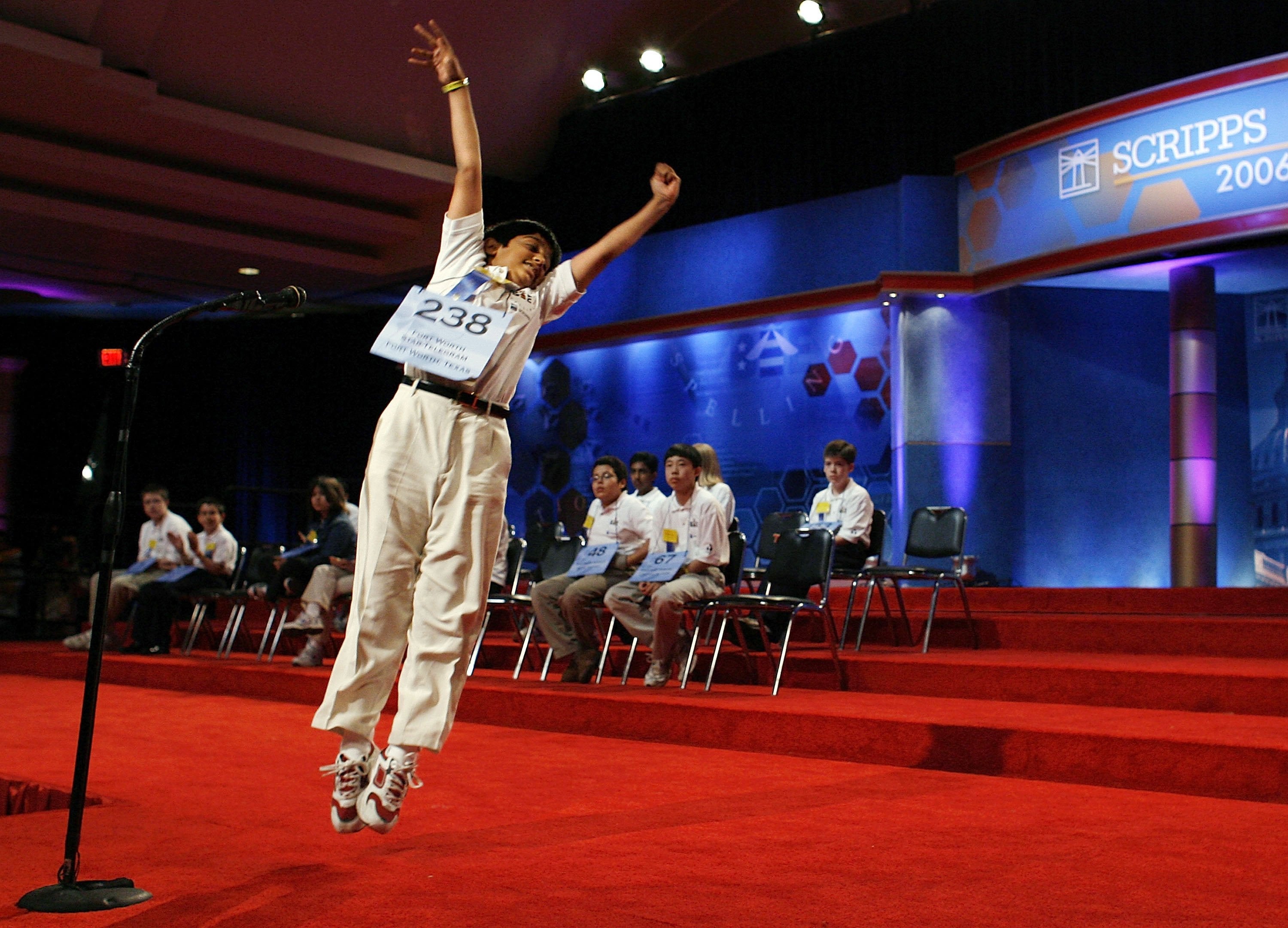
Crustaceology
Year: 1955
Winner: 13-year-old Sandra Sloss from Granite City, Illinois.
Meaning: The study of crustaceans such as lobsters, crabs, and shrimp. Other names for crustaceology are carcinology, malacostracology, and crustalogy. A person who studies crustaceans is a carcinologist.
Esquamulose
Year: 1962
Winner: Nettie Crawford, age 13, of Roswell, New Mexico and Mike Day, age 14, of Hardin, Illinois were announced as co-champions after they both misspelled “esquamulose” after an hour of head-to-head competition as the finalists.
Meaning: An adjective to describe something not covered in scales or having smooth skin. It’s derived from Latin “e-” (not) and “squamula” (small scales).
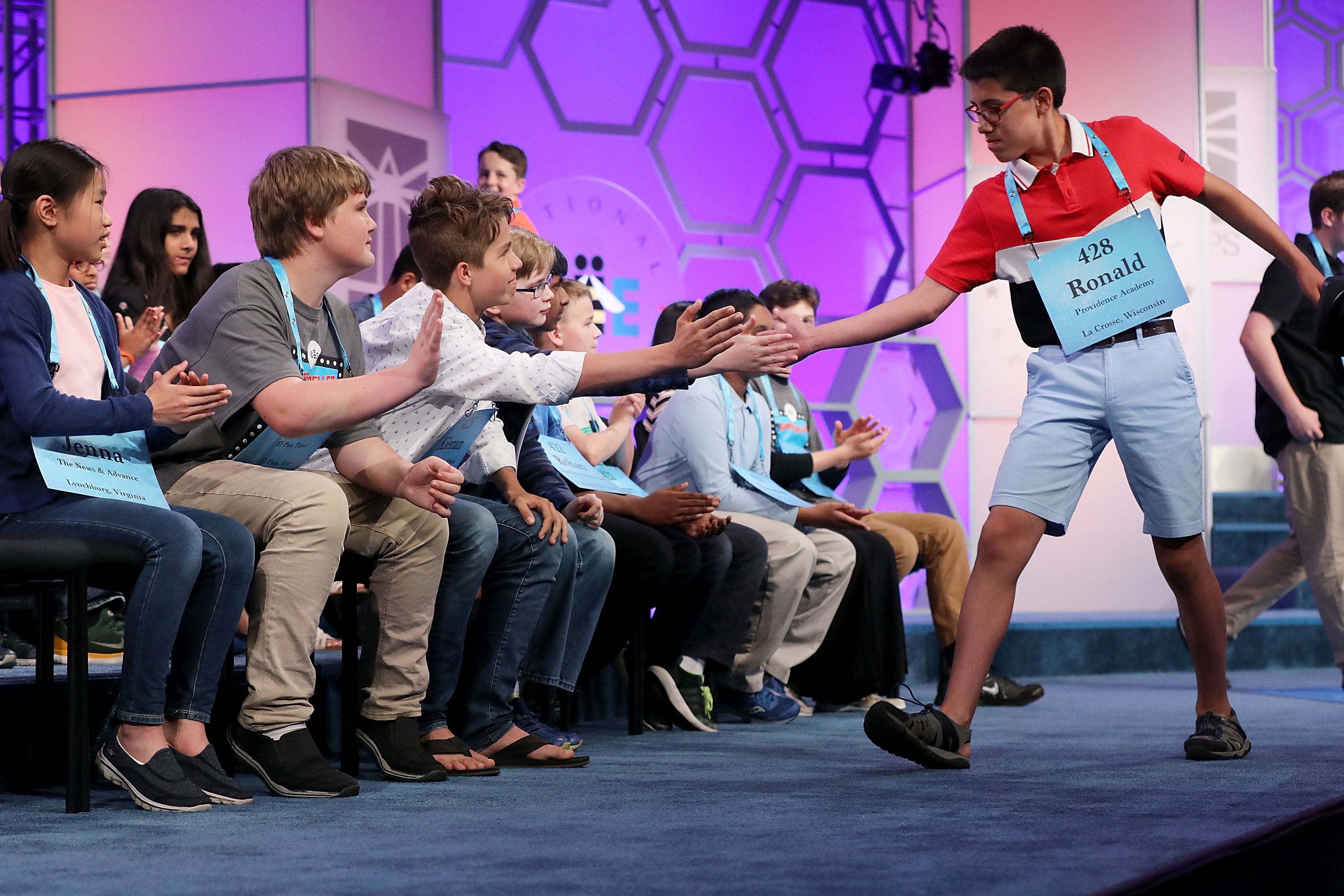
Staphylococci
Year: 1987
Winner: Stephanie Petit, 13, from Bethel Park, Pennsylvania.
Meaning: It is the plural form of a type of spherical bacteria causing staph infections. Staphylococcus comes from the modern Latin staphylo- + -coccus.
Chiaroscurist
Year: 1998
Winner: Jody-Anne Maxwell, 12 years old from Kingston, Jamaica, made history as the first non-American to win the Scripps National Spelling Bee and the competition’s first Black winner.
Meaning: A painter who uses light and shade rather than colour to create the illusion of volume. The word comes from the Italian “chiaro” (clear) and “oscuro” (obscure).
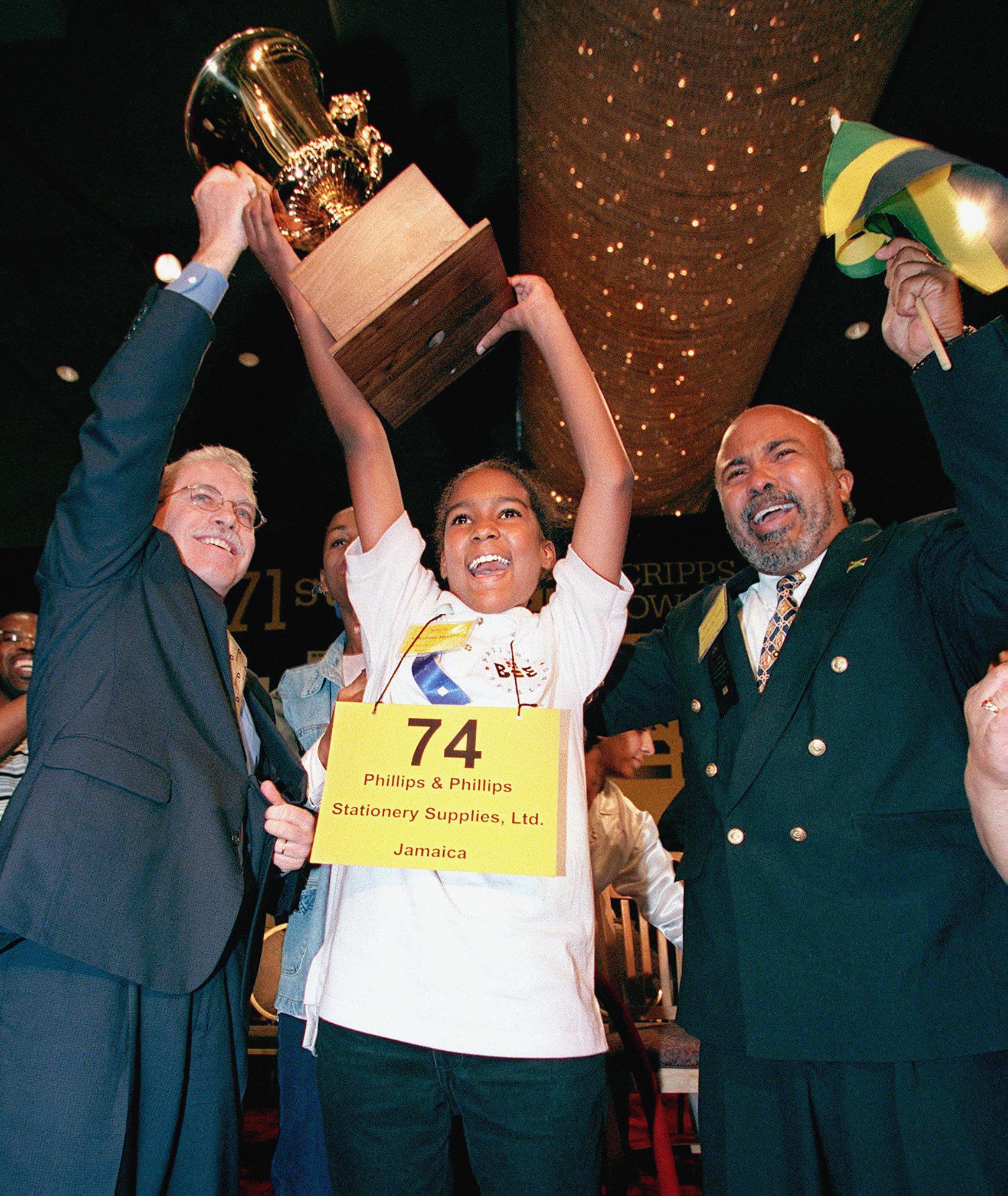
Appoggiatura
Year: 2005
Winner: 13-year-old Anurag Kashyap from Poway, California.
Meaning: A music note played as an embellishment on the main beat. From the Italian word “appoggiare”, meaning “lean upon” or “rest”.
Scherenschnitte
Year: 2015
Winner: Vanya Shivashankar, 13, of Olathe, Kansas was one of two co-winners at the 2015 spelling bee. Gokul Venkatachalum, 14, of Chesterfield, Missouri also came in first.
Meaning: The art of cutting continuous paper designs. Scherenschnitte means “scissor cuts” in German.
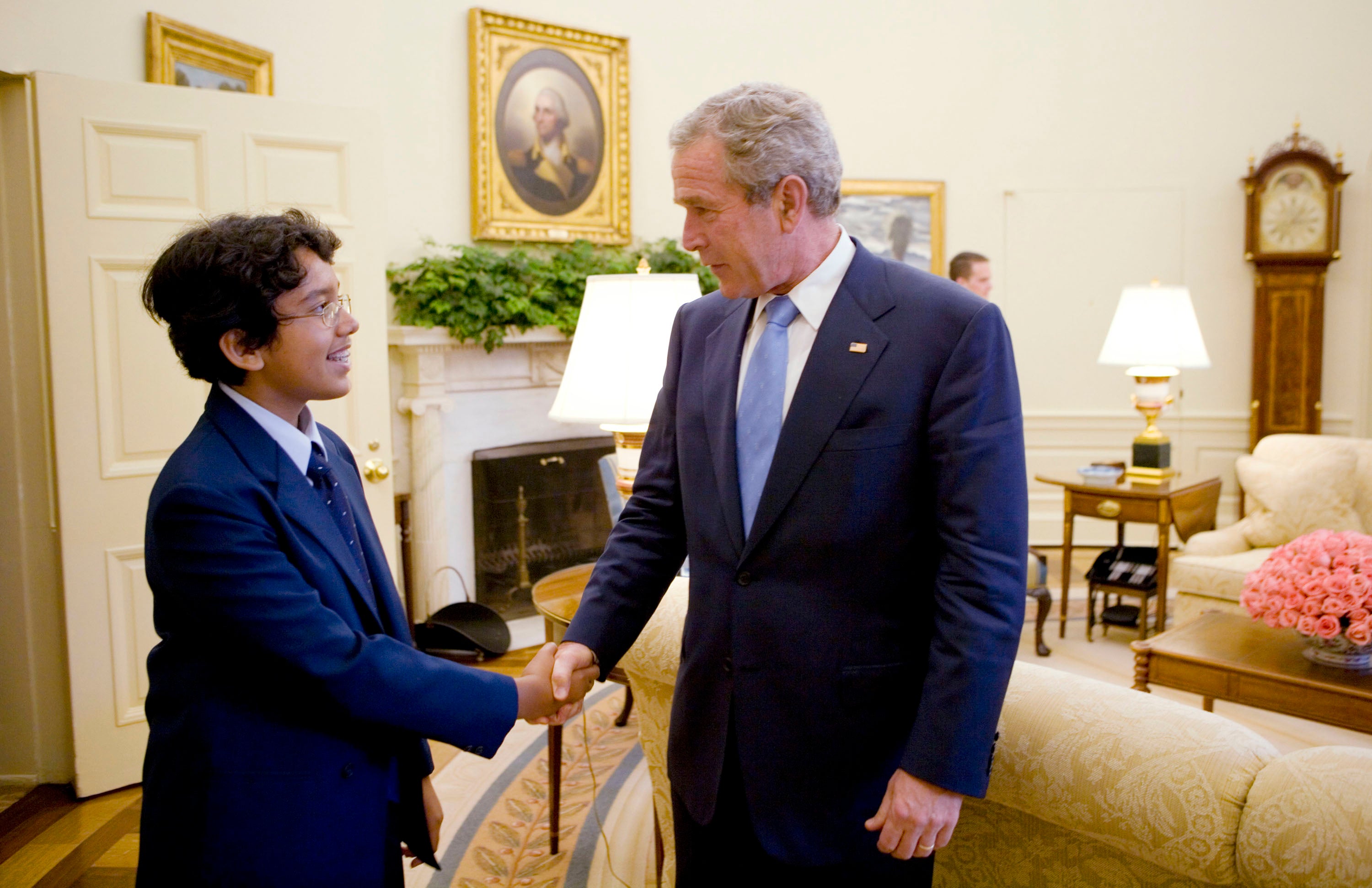
Murraya
Year: 2021
Winner: Zaila Avant-garde, 14, from Harvey, Louisiana became the first African-American contestant to win the spelling bee competition.
Meaning: Murraya is a genus of flowering plants in the citrus family, Rutaceae. The word Murraya comes from New Latin and is named for 18th-century Swedish botanist, Johan Andreas Murray.
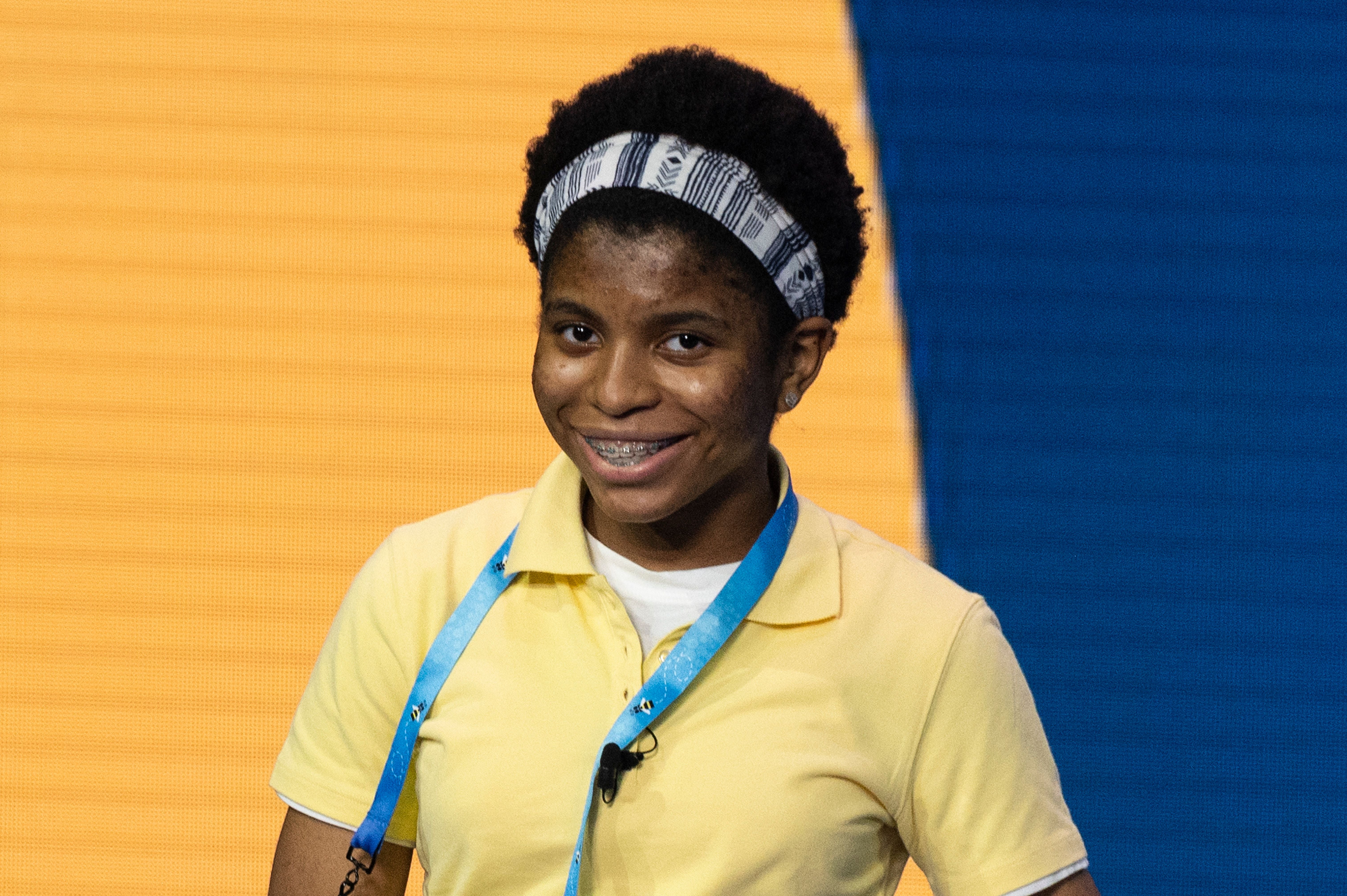
Moorhen
Year: 2022
Winner: Harini Logan, a 14-year-old from San Antonio, Texas, won the spelling bee after a tie-breaker round.
Meaning: An aquatic bird of the rail family with small, roundish heads and a red pointed bill. They are a species of the genus Gallinula, Latin for “little hen”.
Fans can watch the two-day event beginning with the semifinals on 31 May at 8pm eastern on ION, followed by the finals televised live on 1 June at 8pm eastern.
Join our commenting forum
Join thought-provoking conversations, follow other Independent readers and see their replies
Comments


Bookmark popover
Removed from bookmarks